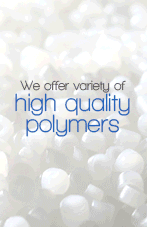Swiss speciality chemicals firm Clariant is setting up a research centre for catalysts in Shanghai, China, to start operating by 2015 with the goal of developing catalytic solutions tailored to Chinese market requirements and enhancing technical service support to Chinese customers.
The centre is expected to further strengthen Clariant´s technology portfolio and service offerings for coal-to-chemicals applications and provide a complete range of solutions for the market. Clariant has had decades of R&D efforts and collaboration with its process technology partners. For example, the world’s first two coal-to-propylene complexes started up with Clariant’s Methanol to Propylene (MTPROP) and methanol synthesis catalysts. It has been serving the Chinese market through locally produced coal-to-methanol catalysts since 2011 and is also one of the leading suppliers of catalysts for coal-to-ammonia conversion.
The China R&D center will also develop new catalysts for selected base metal hydrogenation applications for the fast growing speciality chemicals industry in China. Besides R&D and technical service, the centre will provide support to Clariant’s catalysts production sites in China.
In other news, Clariant is increasing production capacity for its Licocene Performance Polymers by 50% at its facility on the Frankfurt-Höchst Industrial Park in Germany. The debottlenecking of Clariant’s existing production line represents a low double-digit million Swiss Franc investment, with the additional capacity scheduled to come on stream in Q1 2016.
Christian Kohlpaintner, Member of Clariant’s Executive Committee, comments: “The decision to increase capacity reflects the steady double-digit growth experienced for Licocene Performance Polymers since their launch in 2006. It presents an efficient opportunity to support the current strong rise in demand particularly from China, India, Indonesia and Turkey, in line with Clariant’s general strategy to invest in growing businesses.”
Licocene Performance Polymers are metallocene polyolefins with low molecular weight yet high mechanical strength. Their low melt points and low viscosities allow optimum processing at lower temperatures and with lower dosage than alternative products, says Clariant, adding that improvements in end-product performance such as weight reduction can be achieved.
Licocene supports the energy-intensive sectors, such as technical textiles for mattresses, furniture and carpets for automotive and aerospace interiors. They are also used in the manufacture of masterbatches and engineering plastics, as well as in industrial coatings, and in printing inks and adhesives for packaging applications.
(PRA)



















